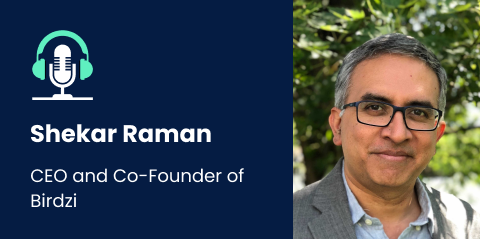Podcast Insights:
- The concept of generative AI encompasses a range of algorithms capable of generating novel content by leveraging training data and incorporating prompts like text, images, or audio, specifying the desired outcome, and producing relevant and coherent content.
- One powerful generative AI model example was GPT-3 (Generative Pre-trained Transformer 3), developed by OpenAI, which excelled in various natural language processing tasks, including text generation.
- Generative AI in healthcare facilitates the generation of novel ideas across various modalities, such as creating new proteins, enhancing efficiency within healthcare systems by automating manual tasks like medical coding and documentation, and personalizing the healthcare experience by processing and analyzing clinical data.
- Medical diagnostics include analyzing symptoms, medical conditions, history, and test results to identify the cause of a medical issue and provide an accurate diagnosis for appropriate treatment. The utilization of Generative AI has the potential to revolutionize the medical field by enhancing prediction accuracy, speed, and efficiency in the diagnosis process.
- By analyzing large amounts of patient data, including medical images, biosignals, demographic information, medical history, and laboratory test results, AI algorithms can make accurate predictions and assist in making informative decisions about patient care.
- Integrating multiple data sources, such as medical images and patient information, provides a more comprehensive understanding of a patient’s health, reducing the chances of misdiagnosis and improving diagnostic accuracy.
- Multimodal data, combined with AI-based care providers, can help monitor the progression of conditions over time, leading to more effective treatment and management of chronic diseases.
- AI-powered clinical decision support systems can provide real-time assistance to healthcare providers, automating routine tasks and allowing them to focus more on patient care.
Q. How can generative AI and technology be used to create new drugs, vaccines, and other treatments?
- Generative AI has immense potential in developing new drugs, vaccines, and clinical therapies. Machine learning can be used to design proteins with specific functions, leading to the creation of functional products.
- Scientists are currently pioneering AI software capable of creating proteins, potentially revolutionizing cancer treatments and offering solutions to combat carbon pollution by leveraging machine learning (ML) and deep learning.
- Machine learning and deep learning enable the design of products with a wide range of functions, surpassing traditional engineering methods. The use of neural networks trained on data patterns allows for generating potential solutions and exploring new possibilities.
- It is essential to ensure that new technologies in healthcare are harnessed for progress and not just for the sake of innovation, emphasizing the connection between humans and machines for the future of healthcare.
- Generative AI, which aims to create new content or generate responses based on existing data, may encounter challenges if data are biased, unrepresentative, or of poor quality, leading to inaccurate or biased content. Therefore diverse, representative, and reliable data is crucial to promote its responsible and ethical use.
- Using private and sensitive data sets in medical diagnostics raises significant ethical concerns about data privacy, cybersecurity, algorithmic transparency, and accountability. Hence, generative AI systems should prioritize the development of robust and transparent methodologies that prioritize rigorous testing and validation processes to ensure their reliability in sensitive domains.
- The development of medical diagnostic tools involving diverse companies and organizations necessitates the establishment of interoperability standards to ensure optimal efficacy. Therefore, research communities must enhance prediction accuracy and expedite the learning process.
- The potential of generative AI in healthcare is both exciting and challenging. Its vast opportunities must be harnessed through careful analysis and adherence to best practices. The rapid pace of digital transformation demands cautious evaluation to mitigate the risks associated with poorly developed technologies.
- For a comprehensive healthcare solution encompassing technology, location, and connectivity, it is imperative to harness the power of generative AI. By fully integrating generative AI into healthcare, we can witness remarkable achievements, such as the successful utilization of deep learning for digital medical image interpretation and population data analysis.
- As we delve deeper into this realm, There are four key areas to delve deeper into with generative AI- effectively interpreting and organizing data, fostering a collaborative generation of novel ideas, intuitively presenting data, and actively involving individuals in developing innovative clinical approaches.
- For a promising future for generative AI in healthcare, data-driven decision-making, collaborative efforts, and empowering individuals to participate actively will shape the new clinical paradigms. This will pave for transformative advancements and ultimately foster a healthier society.
- Advanced AI technologies, like quantum AI, are being introduced into the research domain to accelerate the training process and provide rapid analysis in various fields, such as finance and medicine, as they analyze vast amounts of data in real-time, optimize decision-making processes in medical fields, thereby aiding in the selection of the most suitable treatment options.
- Utilizing algorithms to analyze vast amounts of big data and establish relationships between various factors can significantly transform personalized medicine, leading to improved outcomes and a more effective healthcare system.
- The development and deployment of AI in the medical field are still in the early stages, and several technical, regulatory, and ethical considerations need to be addressed before the technology can fully realize its potential.
Generative AI in Healthcare: Insights from Prof. Enrico Molinari
Dive into how generative AI is reshaping healthcare with Prof. Enrico Molinari. Learn about its impact on diagnostics, treatment, and more.
Duration: 31 minutes
Miss Lily Phang is the Co-founder of Ebility and Homage. Ebility is a global platform dedicated to empowering children with...
Play EpisodeDuration: 21 minutes 17 seconds
With over 19 years of manufacturing transformation experience in Electronic Solutions, Medical Devices, Aerospace, and Defense industries, Tony leads digital...
Play EpisodeDuration: 33 minutes
Shekar Raman is the CEO and co-founder of Birdzi, a grocery retail AI solutions company. He is passionate about leveraging...
Play Episode

